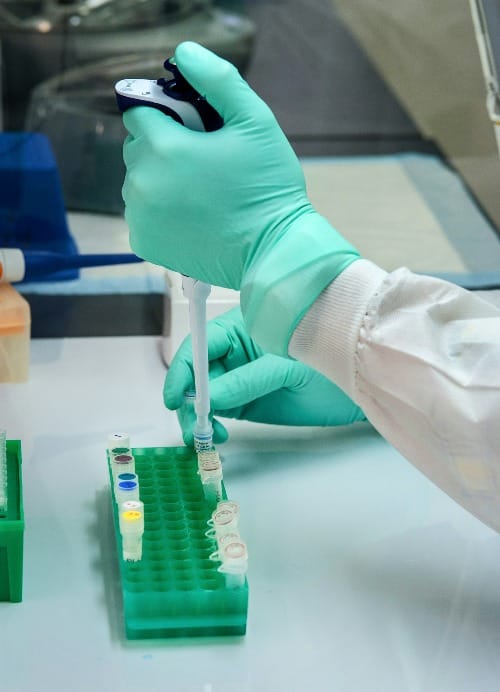In a study published in the prestigious journal Cell, researchers have made significant strides in the field of aging research. This article delves into the fascinating discoveries made by scientists at the Salk Institute for Biological Studies and their collaborators, exploring the potential of cellular reprogramming to reverse aging in mice.
The Promise of Cellular Reprogramming
Cellular reprogramming has long been a topic of interest in the scientific community, offering hope for rejuvenating aged cells and tissues. This process involves reverting mature cells to a stem cell-like state, essentially turning back the biological clock. The recent study, led by Juan Carlos Izpisua Belmonte and his team, has taken this concept to new heights, demonstrating remarkable results in living organisms[1].
Understanding the Yamanaka Factors
At the heart of this research are the Yamanaka factors - a set of four genes (Oct4, Sox2, Klf4, and c-Myc) that play a crucial role in cellular reprogramming. These factors, when expressed in specific combinations, can induce pluripotency in cells, allowing them to potentially develop into any cell type in the body[1].
The Groundbreaking Experiment
The researchers conducted a series of experiments on mice to test the effects of cellular reprogramming on aging. They used a novel approach that allowed for controlled, partial reprogramming, avoiding the complete dedifferentiation of cells that could lead to cancer or other undesired outcomes.
Innovative Methodology
The team developed a unique system called OSKM-PN, which enabled them to activate the Yamanaka factors in a precise and controlled manner. This system allowed for the expression of these factors for short periods, typically a few days each month, over the course of the mice's lives[1].
Remarkable Results
The outcomes of this experiment were nothing short of astonishing:
- Extended Lifespan: Mice treated with the OSKM-PN system lived an average of 18 weeks longer than their untreated counterparts, representing a significant increase in lifespan[1].
- Improved Health Markers: The treated mice showed improvements in various health indicators, including better glucose tolerance, enhanced muscle regeneration, and reduced inflammation[1].
- Rejuvenated Tissues: Analysis of different tissues revealed signs of rejuvenation, with treated mice exhibiting characteristics more typical of younger animals[1].
Unraveling the Mechanisms
The researchers didn't stop at observing these remarkable effects; they delved deeper to understand the underlying mechanisms driving these changes.
Epigenetic Remodeling
One of the key findings was the role of epigenetic remodeling in the rejuvenation process. The study revealed that partial reprogramming led to changes in DNA methylation patterns, effectively resetting the epigenetic age of cells[1].
Metabolic Shifts
The team also observed significant changes in the metabolic profiles of treated mice. These shifts included alterations in lipid metabolism and energy production pathways, suggesting a more youthful metabolic state[1].
Implications for Human Health
While this research was conducted on mice, its implications for human health and longevity are profound. The study opens up new avenues for developing therapies that could potentially slow down or even reverse aspects of aging in humans.
Potential Applications
Some potential applications of this research include:
- Regenerative Medicine: The ability to rejuvenate tissues could revolutionize treatments for age-related diseases and injuries.
- Longevity Interventions: Developing therapies based on partial reprogramming could lead to interventions that extend human healthspan and lifespan.
- Disease Prevention: By addressing aging at a cellular level, it may be possible to prevent or delay the onset of age-related diseases.
Challenges and Future Directions
Despite the excitement surrounding these findings, there are still significant challenges to overcome before this research can be translated into human therapies.
Safety Concerns
One of the primary concerns is ensuring the safety of cellular reprogramming in humans. The risk of uncontrolled cell growth or cancer development must be carefully addressed through further research and rigorous testing[1].
Optimizing the Process
Researchers will need to fine-tune the reprogramming process, determining the optimal duration and frequency of factor expression to achieve the desired rejuvenation effects without adverse consequences.
Ethical Considerations
As with any research that has the potential to significantly extend lifespan, there are ethical considerations to be addressed. These include questions about resource allocation, societal impact, and the potential for exacerbating existing inequalities.

The Road Ahead
This study marks a significant milestone in aging research, but it is just the beginning of a long journey. Future research will likely focus on:
- Translating Findings to Humans: Developing safe and effective methods to apply these findings to human cells and tissues.
- Identifying Specific Targets: Pinpointing the exact molecular pathways and targets that are most crucial for the rejuvenation process.
- Combining Approaches: Exploring how cellular reprogramming can be integrated with other promising anti-aging interventions for synergistic effects.
Conclusion
The research conducted by Izpisua Belmonte and his team represents a major leap forward in our understanding of aging and the potential for its reversal. While we are still years away from seeing these findings translated into human therapies, the study provides a solid foundation for future research and development in the field of regenerative medicine and anti-aging interventions.
As we continue to unravel the mysteries of aging at the cellular level, we move closer to a future where healthier, longer lives may become a reality for many. However, it's crucial to approach these advancements with caution, ensuring that safety, ethics, and equitable access remain at the forefront of scientific progress.
The journey to unlock the secrets of aging has taken an exciting new turn, and the scientific community eagerly anticipates the discoveries that lie ahead on this promising path.
Citations:
[1] https://www.cell.com/action/showPdf?pii=S0092-8674(24)00118-1














Member discussion